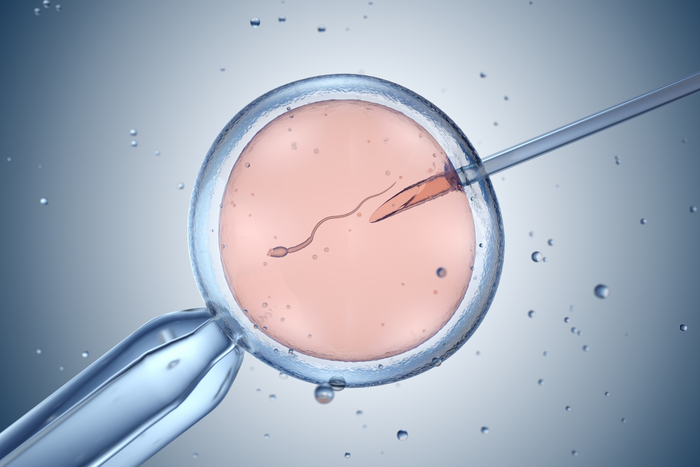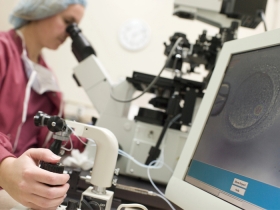Understanding the Role of ICSI in IVF Treatments
When is ICSI Used?
ICSI is typically used when there is a reason to suspect that achieving fertilization may be difficult. It’s most often used with couples who are dealing with male infertility factors. (Source: AmericanPregnancy) Male infertility factors can include any of the following: low sperm counts, poor motility or movement of the sperm, poor sperm quality, sperm that cannot penetrate an egg, or azoospermia. Azoospermia is a condition where there is no measurable level of sperm in the semen. In some cases, ICSI may be recommended when previous attempts at IVF have resulted in failed or poor fertilization.
The ICSI Process
The process involves the following steps: A single sperm is injected into a mature egg. Then, the egg is placed in a culture dish where fertilization occurs. The fertilized egg (embryo) grows in the laboratory for up to five days. Then, the best embryos are selected for transfer. This process requires a high level of expertise and precision. The embryologist uses a specialized microscope and tiny, delicate instruments to pick up a single sperm and inject it directly into the egg. This procedure bypasses the egg's outer layers and allows for fertilization. (Source: Vitanova)

Success Rates of ICSI
While the success rates for ICSI are quite variable, depending on the specifics of the individual case, ICSI has been shown to improve fertilization rates compared to conventional IVF in cases where male factor infertility is present. The success rate of ICSI is often comparable to that of traditional IVF, with a pregnancy rate of about 30% per cycle. However, it’s important to note that the success of ICSI is dependent on many factors, including the age and fertility of the female partner, the quality of the eggs and sperm, and the overall health of the individuals involved.
Risks and Considerations
There are few risks associated with ICSI treatment, as it’s carried out in a controlled laboratory environment. However, as with all forms of assisted reproduction, there is a slightly increased risk of congenital disabilities. It’s also important to note that ICSI does not guarantee a successful pregnancy or the birth of a healthy baby. Many factors can affect the outcome, including the quality of the eggs and sperm, the woman’s age, and the couple’s overall health and fertility.
ICSI has revolutionized the treatment of male infertility within the field of reproductive medicine. It’s a powerful tool that can help overcome severe male factor infertility and give couples a chance at a successful pregnancy. As we continue to advance in our understanding and capabilities in the field of reproductive medicine, procedures like ICSI will continue to play a crucial role in helping couples achieve their dream of starting a family.
Sources:
Science Direct - Biotechnology in the process of assisted reproduction
AmericanPregnancy - Intracytoplasmic Sperm Injection: ICSI - American Pregnancy Association Vitanova - Treatments - Intracytoplasmic sperm injection - ICSI






